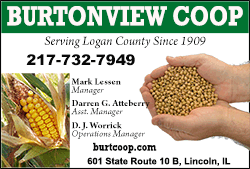First jobs: How to prepare for a life of giving away
money
 Send a link to a friend
Send a link to a friend
 [November 02, 2017]
By Chris Taylor [November 02, 2017]
By Chris Taylor
NEW YORK (Reuters) - From multiple
hurricanes to earthquakes, wildfires and refugee crises, it seems there
was a new humanitarian crisis at every turn in 2017.
At least one positive to come out of it: The many times people dipped
into their own funds to help those in need.
So to honor this year of charity - and the approaching holidays, when
Americans tend to do most of their giving - we talked to a few heads of
the nation's biggest private foundations about how they got their starts
in life.
Richard Besser
President & CEO, Robert Wood Johnson Foundation
First job: Delivering plane tickets
I had just got my driver's license, and I saw a job ad in the paper,
delivering plane tickets for a travel agency. I thought it was perfect,
because I would get to drive all day long. At the interview they asked
me, 'Can you drive a stick shift?' I said, 'Yep.' And I spent that
weekend in a friend's car, learning to drive stick and pretty much
destroying the clutch.

I'm 6'6", and it was a tiny little Volkswagen Beetle, so I basically had
to curl myself up inside. I learned absolutely every route around
Princeton where I didn't have to stop on a hill. I remember one time
being stuck at an intersection like that, waving everyone around me
before I could let the car roll back and grind the clutch.
What I learned from that job is that you have to fake it a little bit
before you make it. That philosophy has served me well. Since then I
have gone on to a lot of jobs where I didn't have the exact right
experience.
La June Montgomery Tabron
President and CEO, W.K. Kellogg Foundation
First job: Attendance taker
This was at a summer program in Detroit's inner city, and I was
basically the attendance taker. I checked everyone in first thing in the
morning, and then made sure at the end of the day that they hadn't left.
We didn't have any punch-clocks, so I was the punch-clock.
I was only 14 at the time, but it was a great amount of responsibility.
I felt that I was a steward, and it was serious business, so it's funny
now that I'm stewarding the resources of Mr. Kellogg.
People in that summer program got paid based on their attendance, so I
was actually a pretty important person. Everyone tried to befriend me. I
got paid $2.75 an hour, and used that money to buy the clothes I really
wanted to wear, like Jordache jeans.

[to top of second column] |

Acting Director of the Centers for Disease Control and Prevention
Dr. Richard Besser (R) makes remarks to the media as U.S. Secretary
of Homeland Security Janet Napolitano listens during a briefing on
possible U.S. emergency measures in the event of a swine flu
outbreak, in Washington April 26, 2009. REUTERS/Mike Theiler

Since that moment, I have always had a job. So last year at the foundation, I
told my staff, 'I want more summer jobs for kids.' Because when a young person
gets that first feeling of independence, there really is nothing like it.
Earl Lewis
President, Andrew W. Mellon Foundation
First job: Milk delivery
Back in those days they still delivered milk in bottles, so at age 8 or 9, I got
a job working with the local milkman. On weekends I would hop on the back of the
truck, leave full bottles on doorsteps and pick up empty ones. I made around 50
cents for doing that, which was a nice alternative to just watching cartoons.
I used to buy a little candy with that money, or get Jughead comic books, or put
it in my little rocket-shaped piggy bank. I wasn't smart enough to be thinking
about college just yet.
I learned a lot about the dignity of labor from that job. Even if something
seems routine or boring, like delivering milk bottles, you can still derive
pleasure from it and have a sense of accomplishment.

Darren Walker
President, Ford Foundation
First job: Busboy
At the age of 14 or 15 I was a busboy at the San Jacinto Inn, and I really was
the bottom of the pyramid. I cleaned the bathrooms, I bused the tables, I did
whatever other people didn't want to do. Along with the dishwashers, I was the
lowest rung in the restaurant.
From that I learned what it was like to be on the margins. My job was basically
to be invisible as possible. So these days I have a great sense of empathy for
people who may not be paid much, but do the essential and unappreciated tasks of
keeping things operating.
I made the minimum wage, which was around $2 an hour, and spent it on helping my
mother pay the rent. From the age of 14 I have always worked to help out my
mother, and still do today.
(Editing by Beth Pinsker and Dan Grebler)
[© 2017 Thomson Reuters. All rights
reserved.] Copyright 2017 Reuters. All rights reserved. This material may not be published,
broadcast, rewritten or redistributed. |